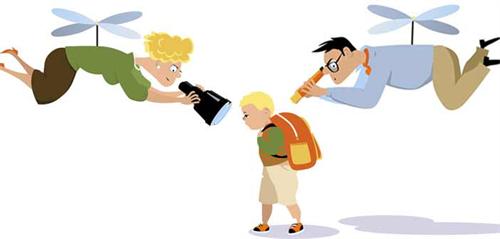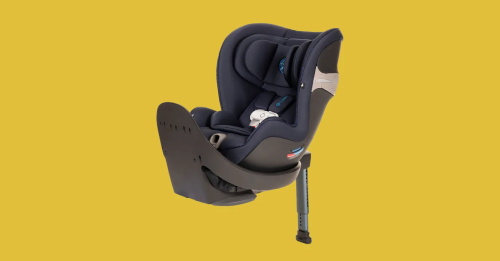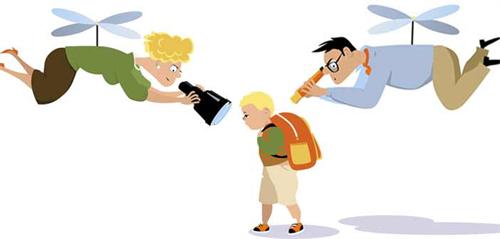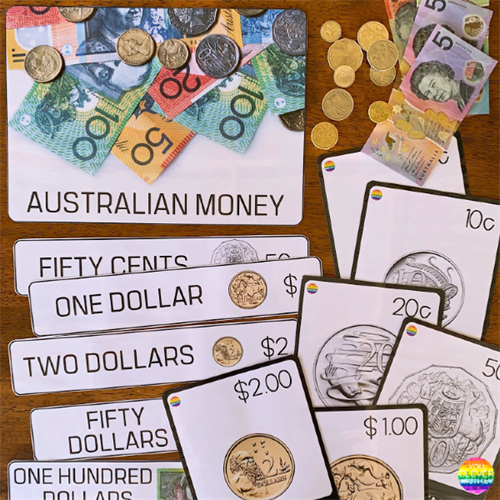Is Helicopter Parenting Making a Comeback in the Age of Uncertainty?

Perhaps we’re already living in a time when helicopter parenting is making a quiet comeback.
The lingering effects of the global pandemic, ongoing economic instability, the disruption of traditional jobs by AI, and the looming climate crisis—all of these factors are silently intensifying parental anxiety. In such a volatile world, parents are becoming increasingly tense, eager to control every aspect of their children’s development, sometimes to the point of living vicariously through them. As a result, the once-criticized style of overly involved, micromanaging parenting is returning in new forms.
The rise of helicopter parents is not a sudden impulse, but rather a deep response to societal pressures. Growing economic inequality and the rising return on education have convinced many parents that their child’s success hinges entirely on academic achievement. Driven by this belief, parents are investing heavily in their children’s education—filling their schedules with tutoring, extracurricular activities, and competitions, often leaving kids busier than adults.
According to the “economic incentive theory,” in societies where education yields high returns and economic inequality is pronounced, parents tend to adopt more intensive parenting styles, hoping their children’s success will serve as a ticket to upward mobility. In contrast, in countries with greater equality and stronger welfare systems—like those in Northern Europe—parents tend to be more relaxed, valuing their children’s independence and creativity, and allowing them greater freedom to grow.
Research from Yale University also confirms this trend: intensive parenting is becoming increasingly common across the globe. Parents are pouring time, money, and emotional energy into their children’s development—not only being hands-on but also trying to “design” and pre-plan their children's life paths.
But is this really the best way to raise a child?
Perhaps such an approach offers some short-term benefits—better grades, safer environments, and orderly lives. However, when parents build a sterile glass greenhouse around their children, shielding them from all forms of risk, the children gradually lose the ability to cope with real-world challenges. On the surface, they may appear cheerful, confident, and well-behaved. But when faced with real-life difficulties, they often freeze, overwhelmed and unsure of what to do.
This is because, throughout their childhood, their parents solved every problem for them, managed their emotions for them, and made all the important decisions. Over time, these children don’t learn independence—they learn dependence. They struggle to assess their own abilities and lack the resilience needed to handle setbacks. They may excel at passing exams but have little idea how to navigate life; they may be adept at pleasing authority but unable to express their true feelings.
This kind of “accelerated maturity” might seem efficient on the surface, but it goes against the natural rhythm of a child’s development. It damages not only the child’s ability to grow but also the emotional bond between parent and child. At the end of the road of hyper-scheduled, over-engineered childhoods lies burnout, detachment, and a loss of meaning.
True parental presence is neither control nor neglect—it is gentle, firm guidance. Education has never been a simple matter of choosing between extremes; it is a delicate balancing act between love and boundaries. Wise parents act like gardeners: pruning when necessary, but also providing sunshine and rain. They replace commands with encouragement and control with support, helping children find freedom within structure and develop their sense of self within appropriate limits.
If the world has truly changed, then perhaps it’s time we changed how we raise our children too. Instead of anxiously laying down every brick of the road ahead, we can teach our children how to walk that road—how to fall and get back up again. We cannot live every step of their lives for them, but we can teach them how to face the storm, regulate their emotions, and believe in themselves.
In today’s fast-paced, high-stakes world, giving children a full, joyful, and independent childhood might be the real way to “win at the starting line.” Because a child who grows into an emotionally healthy, independent adult with a strong sense of self is far more likely to go the distance in life—and stay grounded along the way.
Recommended for you:







